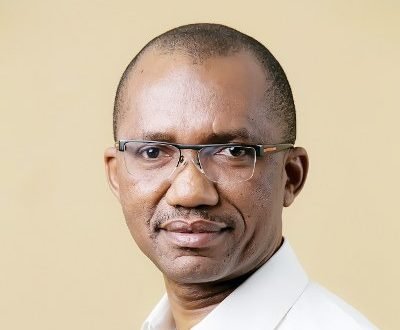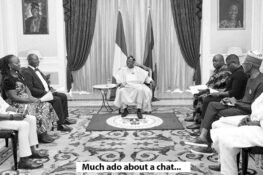They struck again in two different parts of the country on different turfs. In Plateau, the bloody revenge mission by Miyetti Allah for the right of passage for cows left at least 100 dead.
In Abuja, it came to light, again, that lawmakers who have been a thorn in the side of the public had, after seven months, passed a budget that would feed their greed by N31 million each, and increase the number of the suicidal and walking dead in multiple folds.
In Plateau and Abuja, there is a shared assurance among the perpetrators that no matter the number of their victims or the degree of the brazenness of their actions, they will get away with murder.
For over a decade now, there has been a scourge of killings under different banners: militants, Boko Haram, herdsmen, bandits. Name it.
Turn by turn, these groups have waged a ruthless war on the Nigerian people, killing tens of hundreds of people for nothing. The only thing worse than the tragedies that we have witnessed over the years – including the act of madness in Plateau State – is government making excuses for the killers.
Whereas Miyetti Allah reportedly accepted that the killings in Plateau were carried out by its members as part of “retaliatory killings” for 300 rustled cows and the deadly attacks on a few of its members, President Muhammadu Buhari’s government appears determined to look elsewhere for the culprits.
Buhari’s prompt visit to Jos is a remarkable departure from his aloofness in the past. But he failed to use the opportunity to go beyond the usual expression of condolences and vague promises of justice. He shied away from looking directly in the eye of Miyetti Allah and telling them that “retaliatory justice” is jungle justice.
He should have called out Miyetti Allah and told them, point blank, that both they and anyone else involved in the killings on any side, will not go unpunished.
The group obviously thinks it can kill its way to state-funded grazing ranches for its cattle. With ten states already earmarked for this expensive indulgence, that time may not be too far away. But why?
In an extract from a court ruling on open grazing on April 17, 1969, sent to me recently, Justice Adewale Thompson of the High Court ruled in suit AB/26/66 at the Abeokuta division: “I do not accept the contention of defendants that a custom exists which imposes an obligation on the owner of farm to fence his farm whilst the owner of cattle allows his cattle to wander like pests and cause damage.
“Such custom, if it exists, is unreasonable and I hold it repugnant to natural justice, equity and good conscience and therefore unenforceable…in that it is highly unreasonable to impose the burden of fencing a farm on the farmer without the corresponding obligation on the cattle owner to fence in his cattle.
“Sequence to that, I ban open grazing for it is inimical to peace and tranquillity and cattle owners must fence or ranch their animals for peace to reign in these communities.”
No group or individual is above the law. If Miyetti Allah members or their cows were attacked, it is not for them to take the law into their own hands and to justify self-help so brazenly.
Instead of Buhari calling out Miyetti Allah, however, he was inviting self-pity, complaining that people were unfair to him by blaming him for not talking to Miyetti Allah, “because maybe they say I look like one of them.”
Whatever Buhari thinks people may say, he is perceived as patron saint of Miyetti Allah and was, in fact, their advocate in an earlier life. But that’s not a problem nor is it a crime. What is baffling, is why Buhari will not publicly condemn the group and take steps to prosecute those that publicly accepted responsibility for the revenge killings.
Not calling Miyetti Allah by name even once during that visit to Plateau was not a slight on Buhari, as he suggested. It was, instead, a slight on the memory of dead and an insult to the injury of the grieving. It creates serious doubt about where the government’s sympathy really lies.
It was not different from former President Goodluck Jonathan excusing MEND from the October 1 bomb blast in Abuja, even when the group had taken responsibility for its murderous action. Or as Jonathan did later, blaming the opposition for the deadly attacks by Boko Haram and wondering aloud like a helpless, stranded child, if his government had not been infiltrated by the sponsors.
When dozens were killed in Benue in January, President Buhari seemed incredulous. After a disturbing comparison of the number of the Taraba dead with those who died in Benue State, he advised residents to “try and accommodate their neigbhbours”, only for him to say a few weeks later that he suspected the killers in Benue may have drifted in from Libya.
Whether they are murderous neigbhours, strangers from Libya or members of the opposition as the Presidency now wants us to believe, the question is when would the government stop the killings?
In Taraba, Benue, Adamawa, Zamfara and now, Plateau, perpetrators of violent crimes are roaming free, while government is busy rehashing condolence messages and perhaps waiting for the triumph of the last cow before shuffling the security services. This is unacceptable.
Until the government brings the perpetrators of these crimes to justice, whoever they are, the killings will not stop, and the impression that the government’s action is borne out of malicious impotence will continue to fester.
Buhari’s response to the Plateau killings is in marked contrast with the blow he dealt the National Assembly over the mess the lawmakers made of the 2018 budget.
If the intention was to ask the National Assembly to go to hell and still keep them looking forward to the trip, Buhari’s budget-signing speech did just that.
After listening to him mention specific allegations of “padding” and other malfeasance, I was eager to hear what the National Assembly would say.
So far, the National Assembly has not disappointed. The reasons given for playing games with the budget are the same reasons why they have a very bad reputation amongst Nigerians.
They didn’t need to tell us that the National Assembly is not the Executive’s rubber stamp. Bala Na’Allah who spoke for them didn’t need to tell us that the National Assembly is doing “a difficult job.” For N13.5 million monthly allowance as “running cost”, most Nigerians would walk on their heads to get the job done.
The most laughable part of all was Na’Allah saying that they creamed off N14.5 billion from the budget “in order to create a balance between (sic) the six geo-political zones in the country.”
Whereas Buhari named specific projects – across the country – from where the National Assembly had creamed off money and cited priority projects the funds were meant for, Na’Allah (or anyone in the National Assembly) has, so far, not mentioned a single project adjusted for “geo-political balancing.”
There’ll be no meaningful explanation and no price to pay till the cows come home.
The public is besieged on two fronts: On the one hand, there is Miyetti Allah, an outlaw group determined to purchase the right of way for their cattle at any bloody price; and on the other, there are lawmakers who will rob the public graveyard to line their pockets.
Both Miyetti Allah and the lawmakers are linked by one thing: a shared understanding that whatever they do is completely outside the reach of the Buhari’s promise of change.
Ishiekwene is the Managing Director/Editor-In-Chief of The Interview and member of the board of the Global Editors Network








